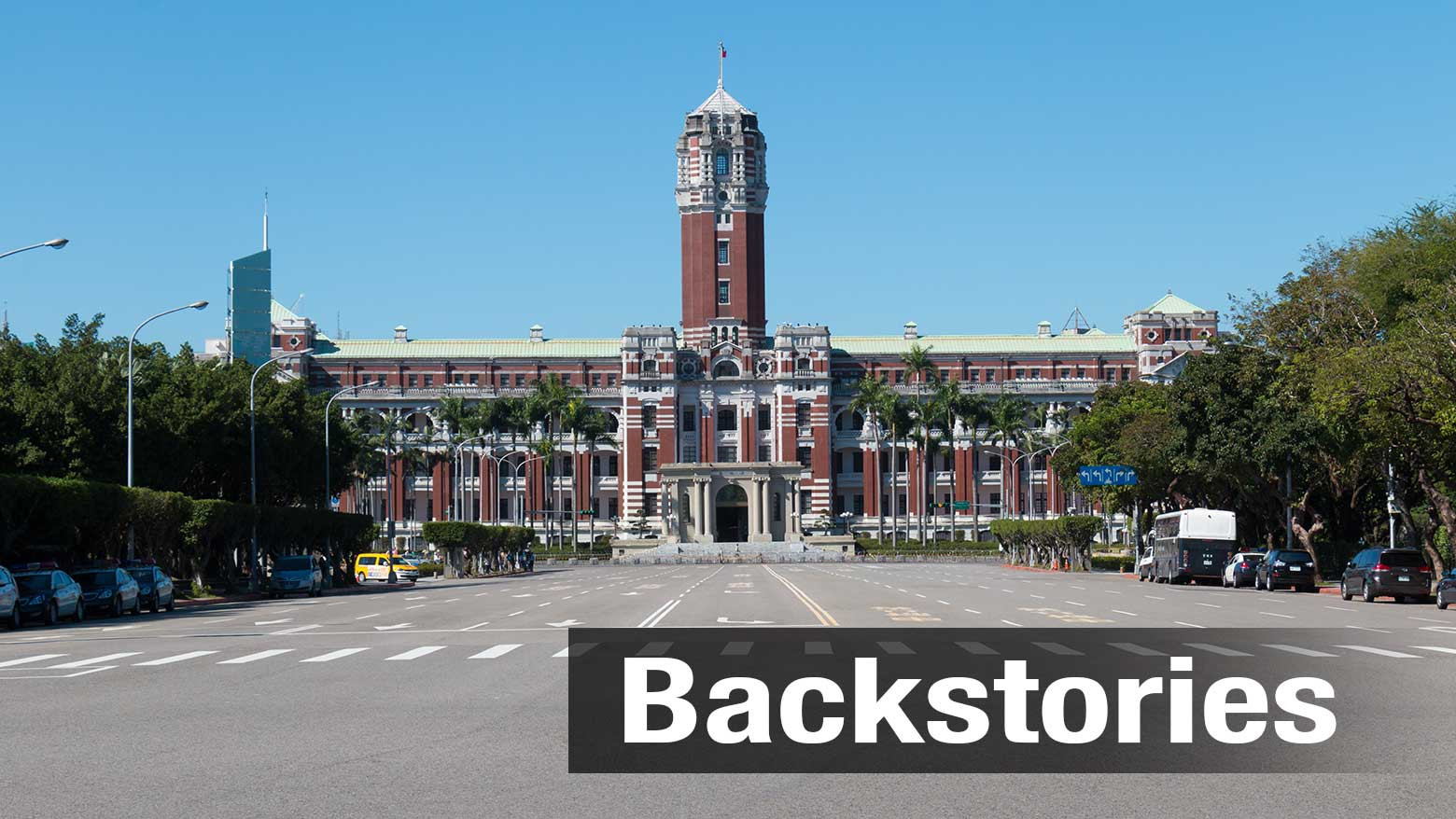A one-on-one race for the presidency
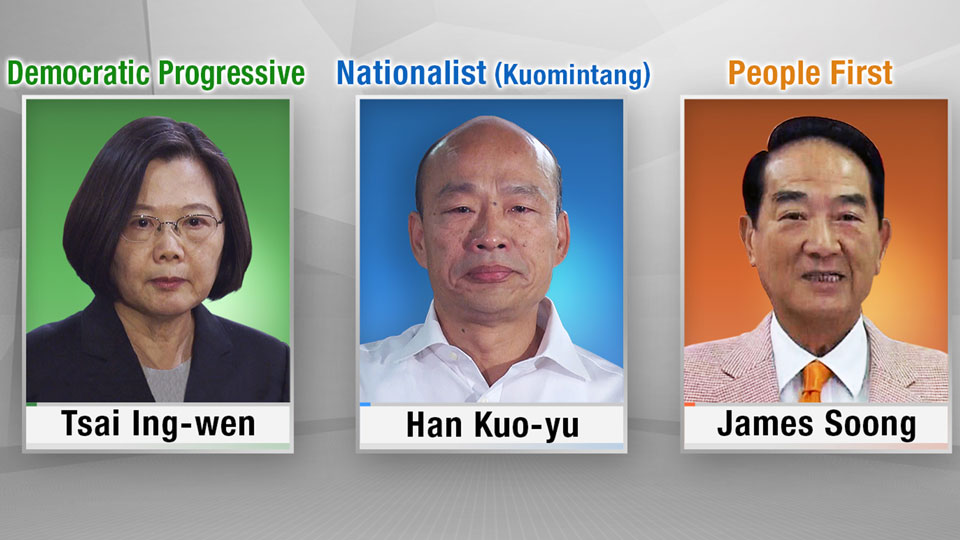
Tsai and her China-skeptic ruling party are facing challenges from Han Kuo-yu of the Nationalist Party and James Soong of the People First Party, both conciliatory toward China. Soong declared his candidacy just last month with no strong voter base, so the contest is effectively between the two major parties. Election day is January 11.
An opinion poll back in August by Taiwan broadcaster TVBS showed that Tsai had overtaken Han. The latest poll gives her a 19-point lead. Voter surveys by other organizations show similar results.
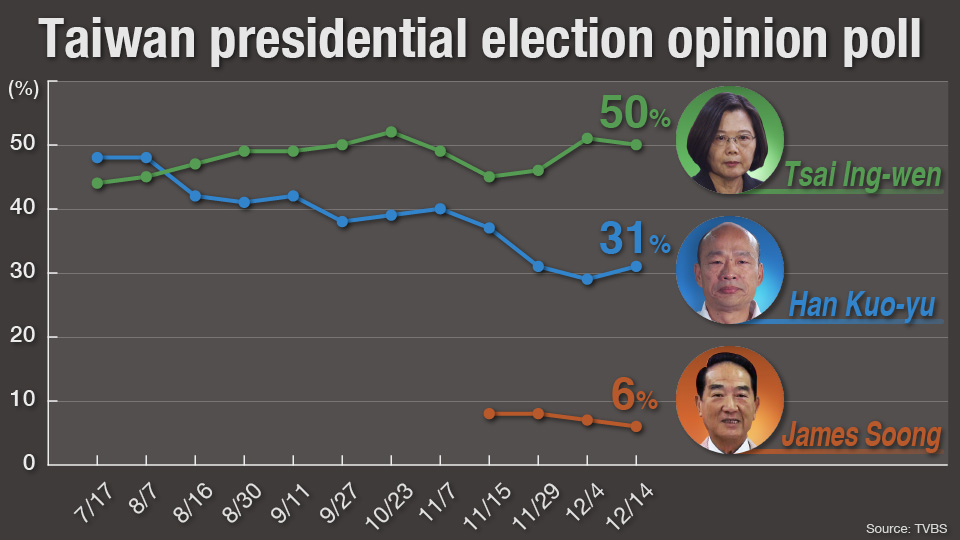
Hong Kong changes the tide
Until half way through this year, though, the Nationalist Party seemed well on its way to taking back power. It was enjoying great support for its promise to boost the economy by improving relations with Beijing. Han had won election as mayor of the traditional Democratic Progressive Party stronghold of Kaohsiung and wasted little time in declaring his candidacy for president. Opinion polls at the time put him in the lead.
But developments in Hong Kong changed the tide. People in Hong Kong began protesting a government bill that would allow criminal suspects to be sent to mainland China for trial. Massive rallies since June have been met with heavily armed police and tear gas, and images of the conflict have fueled fears among the Taiwanese about what the future might hold for them. Beijing aims to unify Taiwan with the mainland under a "one country, two systems" framework similar to Hong Kong.
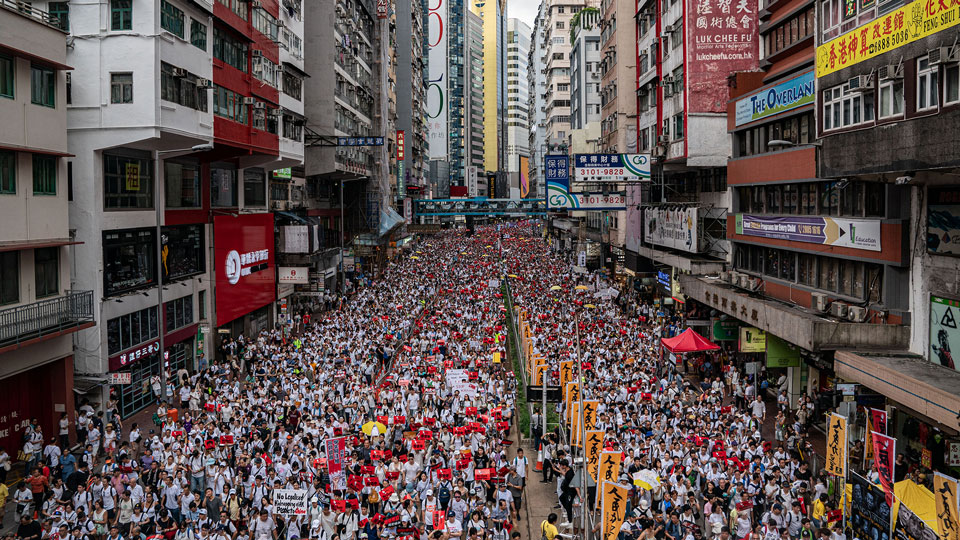
News reports described a feeling of crisis spreading among people in their 20s and 30s who had grown up in a democratic Taiwan. People have been using expressions like "Wang Guo Gan," meaning, literally, "vanishing country feeling."
Tsai responded to those concerns. When China's President Xi Jinping said in January that he would seek to bring about "reunification" of China and Taiwan, Tsai stated unequivocally that Taiwan would never accept the "one country, two systems" policy. She also expressed clearly her support for Hong Kong protesters seeking freedom and democracy. Young voters in Taiwan welcomed her remarks, and the Nationalist Party's Han struggled with his pro-Beijing image.
A proxy war
Tsuyoshi Nojima, a professor at Daito Bunka University in Tokyo, is well-versed in the politics of Taiwan and Hong Kong. He says the US and China are using the presidential election to conduct a kind of proxy war.
In its aim for "reunification," Beijing wants the Democratic Progressive Party out of power and has continued to apply diplomatic, economic and military pressure to achieve this.
Since Tsai assumed the presidency in 2016, China has worked to lure Taiwan's diplomatic allies away. In September, the Solomon Islands and Kiribati in the Pacific severed diplomatic relations with Taiwan, reducing its remaining allies to 15.
In August, China suspended individual travel to Taiwan. In November, China's first domestically built aircraft carrier passed through the Taiwan Strait. Simultaneously, Beijing has offered preferential treatment to Taiwanese companies doing business in China and Taiwanese students studying there.
The "carrot and stick" approach is apparently aimed at influencing Taiwan's elections.
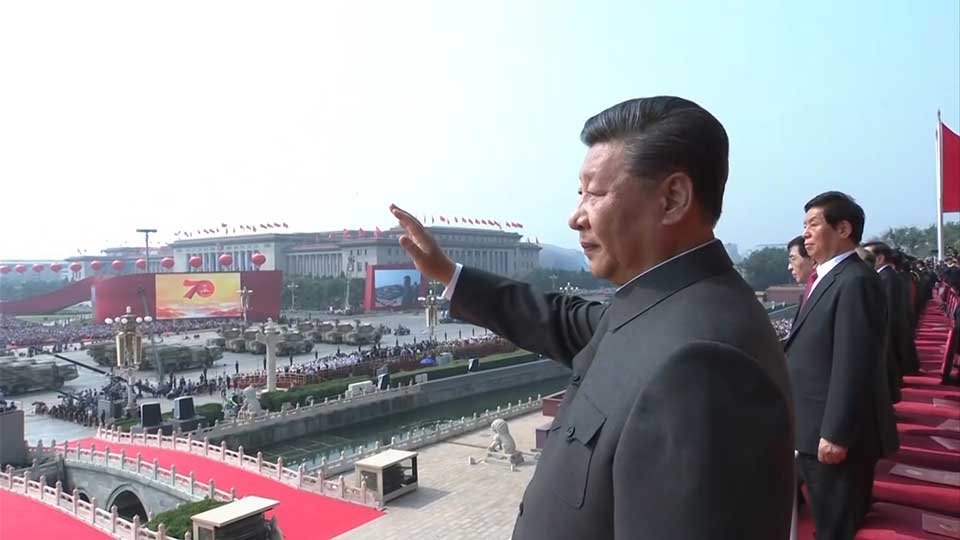
The United States has refrained so far from siding either with the Democratic Progressive Party or the Nationalist Party. But as the US-China trade conflict intensified, Washington showed clear support for the ruling party by deciding in July to sell Taiwan more than 100 tanks and 250 surface-to-air missiles. It later added 66 F-16 fighter jets, which would be the first US fighter jet sale to Taiwan in 27 years.
In a speech in October, US Vice President Mike Pence sharply criticized Beijing. "We've stood by Taiwan in defense of her hard-won freedoms," he said. "Through checkbook diplomacy over the past year, China has induced two more nations to switch diplomatic recognition from Taipei to Beijing, increasing pressure on the democracy in Taiwan."
Another fierce battle for parliament
The presidential vote takes place alongside elections for Taiwan's 113-seat parliament -- the Legislative Yuan.
In 2016, the Democratic Progressive Party secured a majority for the first time ever. This gave the Tsai administration a stable base for fulfilling its election pledges, such as reforms to reduce public service pensions and legalizing same-sex marriage.
This time, the two main parties have been running neck and neck in the parliamentary polls, and neither are expected to win a clear majority. Adding to the uncertainty is a new party founded by Taipei Mayor Ko Wen-je that is attracting support. His Taiwan People's Party could potentially cast a deciding vote in the legislature.
In the few weeks left before voters go to the polls, all the parties are campaigning hard for their vision of the future of Taiwan.
